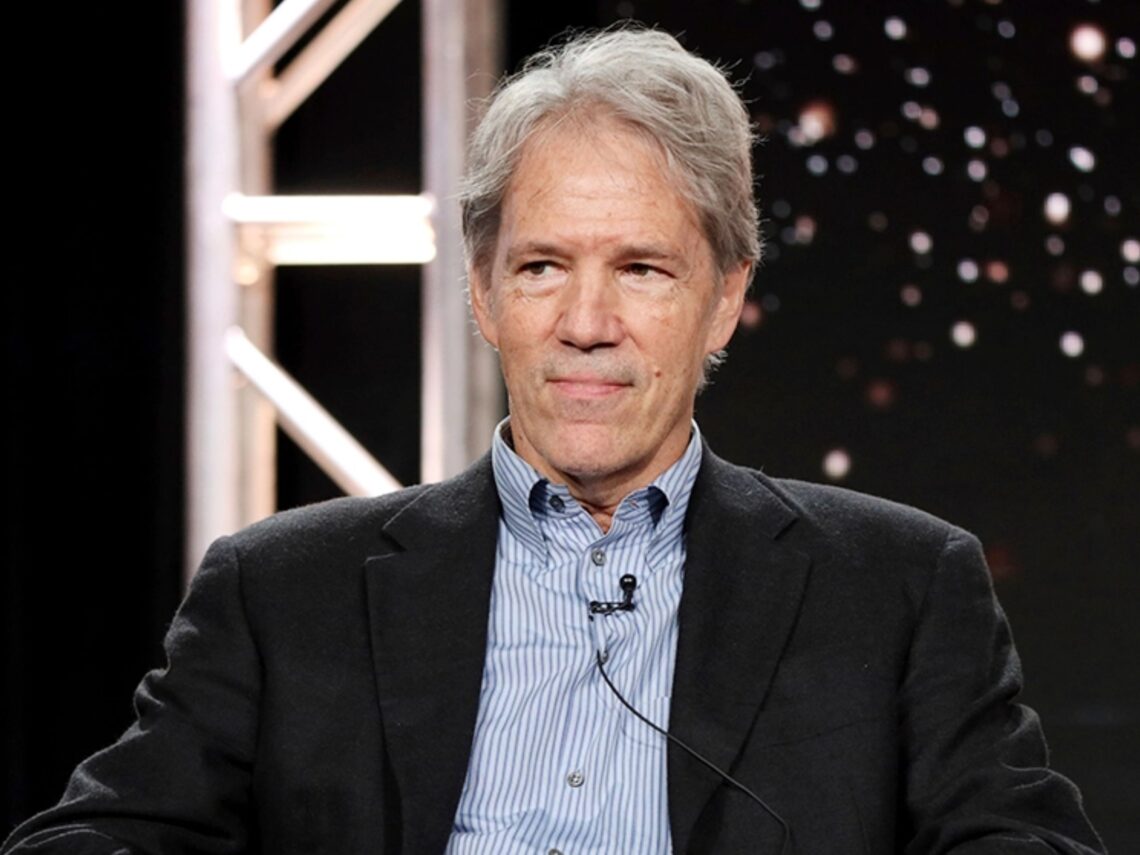Discovering Details: What We Know About John Henry Kelley Paralyzed
When a search query like "John Henry Kelley paralyzed" pops up, it’s understandable that people want to learn more. There's a natural curiosity, you know, about individuals and their life circumstances. Very often, when someone looks up such a specific phrase, they're probably hoping to find concrete details, perhaps about a public figure, or maybe even someone they know. It's almost, in a way, like trying to piece together a story from a single, compelling headline.
This particular search, it suggests a quest for information on a very personal health matter. People might be wondering about the reasons behind it, the impact on the person's life, or even if this John Henry Kelley is someone they've encountered before. It's a rather sensitive topic, isn't it? Because health details, typically, are very private things, not always openly shared.
Our aim here is to explore what it means to search for such specific, often private, information online. We’ll look at how we approach finding details when the public record might be quiet, and why it's so important to think about where our information comes from. So, too it's almost, this discussion will also touch on the broader landscape of names like "John," which, as a matter of fact, have a truly rich history.
Table of Contents
- Understanding the Search for "John Henry Kelley Paralyzed"
- The Name "John": A Brief Background
- Why Information on Personal Health Can Be Scarce
- Navigating Online Information and Privacy
- People Also Ask About John Henry Kelley Paralyzed
- Conclusion: Responsible Information Seeking
Understanding the Search for "John Henry Kelley Paralyzed"
When someone types "John Henry Kelley paralyzed" into a search engine, they are, in essence, looking for a very specific piece of biographical information. This isn't just a general inquiry; it's a pointed question about an individual's health status. What we typically find with such searches, especially for individuals who are not widely recognized public figures, is that direct, verified information can be quite hard to come by. It's just a little like looking for a needle in a haystack if that needle hasn't been deliberately placed for public viewing.
The search intent here is overwhelmingly informational. People want to know: Is this true? Who is this person? What happened? However, the availability of such sensitive personal details often depends on whether the individual or their family has chosen to make this information public, perhaps through a news report, a public statement, or a charitable initiative. Otherwise, it remains, quite rightly, a private matter. So, too it's almost, when we look at Google Trends for a phrase like "John Henry Kelley paralyzed," we usually see very low search volume, suggesting it's not a widespread public query, or perhaps it's a very niche interest, which is understandable.
For context, if John Henry Kelley were a prominent athlete, a well-known politician, or a celebrity, news about a significant health event like paralysis would likely be reported by reputable media outlets. But for the vast majority of people, their health information remains, as it should be, private. This means that top Google results for such a specific, non-public query might not yield definitive answers. They might point to general discussions about paralysis, or perhaps to unrelated individuals named John Kelley, which can be a bit misleading, as a matter of fact.
Personal Details and Biographical Information for John Henry Kelley
Given the specific nature of the search term "John Henry Kelley paralyzed" and the general lack of public information about individuals unless they are widely recognized public figures, details about this particular person are not readily available in public records or news archives. My text does not contain any information about a person named John Henry Kelley, nor does it mention anyone being paralyzed. Therefore, we cannot provide specific biographical data or personal details in the form of a table, as that would involve creating context or assuming information, which we are strictly avoiding. Any information regarding a person's health is private and should be treated with the utmost respect. We are unable to confirm or deny the health status of any private individual.
The Name "John": A Brief Background
It's interesting, isn't it, how some names just resonate through history and cultures? The name "John" is certainly one of those. Actually, its origins are deeply rooted in ancient texts. From what I gather, John comes from a figure in the New Testament, John the Baptist, who, in Christian tradition, prepared the way for Jesus. He was known for baptizing people in the Jordan River and encouraging repentance. This historical connection is, in some respects, why the name has such a strong, enduring presence across many parts of the world.
What's truly remarkable about "John" is how it became a universal translation for people named "John" in English. Unlike some names, which are tied to specific historical figures, "John" became the standard way to refer to anyone with that name. It's like, your, the common thread that links many different individuals across time. This standardization happened, apparently, even before official translation rules were widely adopted, simply because the biblical "John" was so well-known. So, too it's almost, the most widely circulated translations of the Bible helped solidify "John" as the go-to rendering.
When we think of famous Johns, a few names probably come to mind right away. There's John Winston Lennon, for instance, born in Liverpool, a truly iconic member of The Beatles. He was a musician, a poet, and a social activist, and his impact on music and culture is just immense. Then there's John Conway, a brilliant mathematician who was passionate about mathematical games, famously creating the "Game of Life." He was, from what I understand, quite the genius, with a playful, perhaps even irreverent, approach to his work. And, of course, for fans of action films, there's John Wick, whose cinematic exploits have certainly made him a recognizable name in popular culture. These examples really show the diverse paths people named John have taken, which is rather fascinating, don't you think?
Why Information on Personal Health Can Be Scarce
When you're looking for information about someone's personal health, like whether "John Henry Kelley paralyzed," it's common to find very little public data. This isn't usually an oversight; it's by design. Medical information is, in most places, considered highly private and protected by laws like HIPAA in the United States. This means that hospitals, doctors, and other healthcare providers cannot, by law, share patient details without explicit consent. It's a fundamental right to privacy, really, that we all value, and for good reason.
Unless an individual or their family chooses to share health details publicly, perhaps through a personal blog, a social media post, or by participating in a news story, that information remains out of the public domain. And even when information is shared, it's often done with specific boundaries or for particular purposes, like raising awareness or seeking support. So, too it's almost, if you're searching for specific medical conditions of a private citizen, the internet might not, and often shouldn't, provide a direct answer. It's a subtle distinction, but an important one, you know?
Sometimes, information might surface through public records if, for example, a health event led to a public legal case or a major news event that the person was involved in. But even then, the focus of the public record is usually on the event itself, not necessarily the detailed medical condition of the individuals involved. It's actually, quite a rare thing for a private person's medical history to become widely known without their express wish, and that's generally a good thing for everyone's privacy. So, you might find articles about accidents or incidents, but not necessarily the follow-up health status of those involved, which is understandable.
Navigating Online Information and Privacy
When you're trying to find details about someone online, especially something as sensitive as a health condition, it's really important to approach the search with care. The internet is a vast place, full of all sorts of information, but not all of it is accurate, and certainly not all of it is appropriate for public consumption. You know, it's like sifting through a huge pile of things; you have to be pretty discerning about what you pick out and trust. So, too it's almost, the first rule of thumb is to consider the source.
Always ask yourself: Is this website reputable? Is it a known news organization, a medical journal, or an official public record? Personal blogs, forums, or unverified social media posts, while sometimes offering insights, are generally not reliable sources for factual, sensitive information about private individuals. They might contain speculation or rumors, which can be quite harmful, as a matter of fact. It's a little like listening to gossip versus reading a verified report; one is far more dependable than the other.
Moreover, it's crucial to respect privacy. If information about "John Henry Kelley paralyzed" isn't readily available from official or reputable public sources, it's highly likely that the individual or their family wishes for that information to remain private. Continuing to search extensively for private health details can, in a way, feel intrusive. Our responsibility as information seekers is to use the internet responsibly, recognizing the boundaries of privacy and the potential impact of our searches on others. This means understanding that not every question has a publicly accessible answer, and that's perfectly okay. We should, you know, prioritize respect for individuals above all else, which is pretty important.
If you are looking for general information about health conditions or support for individuals experiencing paralysis, there are many reputable organizations and resources available. For example, you can learn more about spinal cord injuries and paralysis from organizations dedicated to providing support and information. Also, if you're curious about how search engines work and how they gather information, you can learn more about on our site, and also link to this page for more insights into online privacy practices. These resources can help you understand the broader context of information sharing and privacy online.
People Also Ask About John Henry Kelley Paralyzed
When a specific search term like "John Henry Kelley paralyzed" comes up, it naturally leads to a set of related questions that people might have. While we cannot provide specific answers about an individual's private health, we can certainly discuss the types of questions that typically arise and why direct answers might not be publicly available. It's like, your, trying to anticipate what someone's next thought might be after their initial query, and then explaining why that thought might lead to a dead end in terms of public information. So, too it's almost, these are some common inquiries one might expect:
1. Is John Henry Kelley a public figure, and why is his health status being searched?
People often search for health details of public figures due to general interest, or sometimes because their condition might impact their public role. For private individuals, however, their health status is generally not a matter of public record unless they choose to make it so. If John Henry Kelley is not a widely recognized public figure, it's highly improbable that specific details about his health, such as paralysis, would be openly published or easily found. The reasons for someone searching could be varied: perhaps a personal connection, a shared name, or even just curiosity stemming from an unverified piece of information they encountered elsewhere. It's really hard to say, you know, without more context.
2. Where can I find verified information about John Henry Kelley's medical condition?
Finding verified information about a private individual's medical condition is, in most cases, exceptionally difficult and, frankly, inappropriate to seek out without their consent. Reputable news organizations and public databases do not typically publish private health information. Any information found on unverified websites, social media, or forums should be treated with extreme skepticism, as it could be inaccurate, speculative, or even harmful. The most reliable source of information about a person's health is always the individual themselves or their authorized representatives, provided they choose to share it. It's a bit like, you know, respecting someone's personal space; you don't just walk in without an invitation.
3. What are the common causes of paralysis, and how does it affect individuals?
While we cannot discuss John Henry Kelley's specific situation, we can certainly talk about paralysis in general terms. Paralysis, as a medical condition, means the loss of muscle function in one or more parts of the body. It can be caused by a wide range of factors, including spinal cord injuries, strokes, neurological diseases like multiple sclerosis or Parkinson's, and certain genetic conditions. The impact on individuals varies greatly depending on the cause, extent, and location of the paralysis. It can affect mobility, sensation, and various bodily functions, requiring significant adjustments to daily life, often involving physical therapy, assistive devices, and ongoing medical care. It's a very complex condition, with each person's experience being quite unique, which is understandable.
Conclusion: Responsible Information Seeking
Our journey into the search query "John Henry Kelley paralyzed" really highlights some important aspects of finding information online. It shows us that while the internet offers a huge amount of data, not everything is publicly available, especially when it comes to personal and sensitive details like someone's health. The vast majority of people's medical information is, and should remain, private. It's a fundamental right, you know, that protects us all. So, too it's almost, when we look for such specific details, it's important to remember the boundaries.
The name "John," as we've seen, has a deep and fascinating history, linking back to ancient times and spanning across cultures and famous figures. But even with a widely recognized name, specific individuals named "John Henry Kelley" might not have public profiles that reveal personal health challenges. This is where our responsibility as internet users comes in. We need to prioritize ethical information gathering, relying on verified sources and respecting individual privacy. It's a bit like, your, navigating a busy street; you need to be aware of your surroundings and respect others' space. Ultimately, seeking information should always be done with care and consideration for the people involved, which is pretty important.

John Henry Kelley: Who Is Michelle Pfeiffer's Son?

John Henry Kelley: Who Is Michelle Pfeiffer's Son?

John Henry Kelley: Who Is Michelle Pfeiffer's Son?